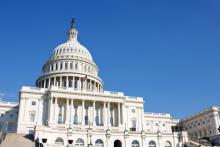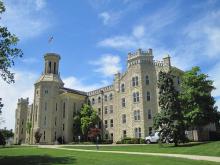Affordable Care Act

This morning a Canadian woman wrote such an interesting comment on an old post of mine, "Rationing is not a four-letter word," that I want to share it with you. I don't know the author, her full name (though she tells me her first name is LaVonne, so she's obviously a great person), or her contact information, so I can't give her full credit. But thanks, LaVonne-in-Canada: I learned a lot from you.
Here's what she wrote about how Canadian health care works for her. I've added a few comments in italics, in case you want to compare the situation of LaVonne-in-Canada with that of LaVonne-in-the-United-States.

As people of faith, we sometimes don’t take time to prepare ourselves for what is ahead. With so many things vying for our time and attention, it is difficult to educate ourselves about all facets of critical matters. Even in our relationship with God, we gloss over important details that will guide us into a closer walk and become content with a distant half-hearted relationship. However, a casual walk with God is not one we should settle for. By delving into God’s Word, we are able to draw upon God’s wisdom for guidance and find a deeper relationship with God as we travel through this journey of life.
In a similar fashion, we cannot settle for casual knowledge of the Affordable Care Act, which is now upon us and “gives Americans unprecedented information about the health plan choices in their own communities.” The Kaiser Family Foundation reports in a recent poll that 51 percent of all Americans are still unsure about how the ACA will affect them. 42 percent of Americans thought that Congress had overturned the act or that the Supreme Court had ruled it unconstitutional. And, many Americans worry that they will have to shell out more money due to the new health reform law. This uneasiness and misinformation certainly warrants a closer look as we journey through the multiple avenues of the Affordable Care Act.

One of the most depressing things I heard on the first day of the government shutdown was that it was a record fundraising day for both parties. Washington, D.C., is no longer about governing; it is just about winning and losing. But the people who will lose the most during a government shutdown — and then an impending United States government default on paying its debts — are those who live day to day on their wages, those at the lower end of the nation’s economy, and the poorest and most vulnerable who are always hurt the most in a crisis like this. And what happens to those people is the focus of the faith community; that is our job in politics — to talk about what happens to them. Faith leaders have been meeting to discuss what we must do in response to this political crisis brought on by absolute political dysfunction
The government shutdown seems to have gotten the attention of the nation. And if this ends in a default on our debt, the potentially catastrophic crashing of the economy will certainly wake us up. The only positive I see in this crisis is that the right issues — the moral issues — might finally get our attention.

The federal government began shutting down overnight, for the first time since 1996, after Congress failed to compromise on how to fund federal agencies — battling instead over implementation of the Affordable Care Act.
From The Washington Post:
The impasse means 800,000 federal workers will be furloughed Tuesday. National parks, monuments and museums, as well as most federal offices, will close. Tens of thousands of air-traffic controllers, prison guards and Border Patrol agents will be required to serve without pay. And many congressional hearings — including one scheduled for Tuesday on last month’s Washington Navy Yard shootings — will be postponed.
Faith leaders on Monday called on Congress to end partisan brinkmanship and consider the real damage their actions have on the American people.

Old News: U.S. spends more on healthcare, gets worse results
We Americans are first in the world when it comes to per capita healthcare spending, and yet we don't live as long (we're in 51st place), more of our mothers die in childbirth (we're in 47th place), more of our babies die in their first year of life (we're in 50th place) ... well, you've seen the statistics, and they aren't pretty.
Interesting Spin on Old News: Medical and social spending should be seen as a whole
"The truth is that we may not be spending more," wrote Elizabeth H. Bradley and Lauren Taylor in a 2011 New York Times article — "it all depends on what you count." If you count "the combined investment in health care and social services," such as "rent subsidies, employment-training programs, unemployment benefits, old-age pensions, family support and other services that can extend and improve life," we're in 10th place among developed nations.
JASON COOPER LOOKS out at the audience gathered in Restoration Church and asks, “Is it God’s will to heal?”
The former art school classroom, where the Pentecostal Dover, N.H., congregation meets, is nearly full, even though it is a Thursday evening in April. In addition to the 70 or so regular members who have come to hear Cooper preach, there are nearly a dozen visitors. One woman leans heavily on a cane. Another can’t turn her head from side to side and needs neck surgery.
They are casualties of slow research and expensive health care. According to the Kaiser Family Foundation, a nonprofit health-care policy think tank, health expenditures have increased 10-fold in the past 30 years. Though some health- care increases can be attributed to longer life spans, the high costs of drugs, hospital stays, and doctor visits have been compounded in the wake of the recession.
A young woman tensely watches Cooper as if he might explode at any minute. No one knows exactly what he will do. The audience fidgets in response to his question. Cooper, with his soul patch, slick black haircut, white button-down shirt, and stone-washed jeans, looks a little like a Vegas magician.
But Cooper is a traveling faith healer.
In an attempt to attract conservative voters, undecided senators, and Republicans, talks of doubling border patrol security is in the works. Increasing border patrol security from 21,000 agents, to 42,000 agents, members of the Gang of Eight and Republicans, Bob Corker of Tennessee and John Hoeven of North Dakota have come together and created a package plan to entice conservative’s support for the passing of the immigration bill. Politico reports:
Strengthening border security had long been the major impediment to attracting conservative votes, and a compromise that resolves the issue would significantly improve chances for passage of the overall bill.
Read more here.
California is the facing a new challenge: getting young adults to enroll in the Affordable Care Act. More than 2 million Californians, ages 19 to 34, are uninsured. Getting these individuals enrolled is crucial to balancing the cost of older, sicker patients. The state is developing media strategies to specifically target young adults and encourage to them buy insurance. The Los Angeles Times reports:
The success of the healthcare law "depends on reaching everyone who is uninsured, but particularly young people who may feel like they don't need insurance," said Larry Levitt, a senior vice president at the Kaiser Family Foundation.
Read more here.
The first draft of form was confusing and complex so the Obama administration has created a simplified application for healthcare. The Associated Press reports:
Details to be released Tuesday include a three-page short form that single people can fill out, administration officials said. Medicare chief Marilyn Tavenner, also overseeing the rollout of the health care law, called it "significantly shorter than industry standards."
Read more here.
ON A WINDY morning this March, as the Supreme Court began hearing oral arguments about the health-care reform law, the Affordable Care Act (ACA), hundreds of people of faith gathered in front of the court building. As part of a public witness, they prayed and carried signs that proclaimed “People of Faith for Health Care.” Participants came from various faith traditions and denominations, many of which also signed an amicus brief in support of the ACA’s expansion of Medicaid to cover more low-income adults. The event was organized by two interfaith coalitions, Faithful Reform in Health Care and the Washington Interreligious Staff Community (WISC) Health Care Working Group.
The groups involved were motivated not by political beliefs but by a moral imperative, shared across faith traditions, to build a just society that cares for the poor, the sick, the widow, the orphan, and “the least of these.”
Those who gathered believe that their prayers on behalf of the uninsured were heard when, almost three months later to the day, the Supreme Court upheld the ACA. Chief Justice John Roberts’ vote with the more liberal justices led to the unlikely majority that provided a major step forward in the century-long struggle for health-care justice in the U.S.
I have to admire Melinda Gates' chutzpah.
In her recent TED talk and on her blog, Impatient Optimist, Gates insists that "contraception is not controversial" — when, in the last year, it has been explosively controversial, with many Christians (not just Catholic Christians) seeing the "contraceptive mandate" as a real threat to religious freedom.
Yesterday, the new Affordable Care Act laws took effect, meaning that most employers must now provide free birth control coverage in their health insurance policies. Whether it constitutes a threat to religious liberty and whether remains to be seen — faith-based groups with religious objections to the law have a "safe harbor" until Aug. 1, 2013. Whether HHS will create an extension of this harbor is as yet unknown.
Regular readers of my blog know where I stand on health insurance. As to the contraceptive mandate specifically, I'd prefer not to wade in those particular waters — David Gibson had a good piece if you're interested in the question of whether the mandate kills religious freedom. However, I do want to consider two small points about contraception that lean me toward the (self-identified Catholic!) Melinda Gates point of view:
1. Contraception doesn't take life;
2. Women want contraception.

Today Wheaton College, a leading evangelical Christian school and the alma mater of the Rev. Billy Graham in Illinois, sought an injunction for "emergency relief," as it seeks to remain exempt from the Health and Human Services (HHS) insurance mandate which comes into effect today.
Filed on Wheaton's behalf by The Becket Fund for Religious Liberty, the preliminary injunction would, the college hopes, temporarily keep at bay the fines which would be levied on them under the mandate, should they fail to comply with the provisions.
The provisions, which are part of the Affordable Care Act, would require “most employer health insurance plans to provide birthday control coverage,” as was reported on God’s Politics last month. Many Catholic institutions and groups have already filed lawsuits again the mandate, and Wheaton is one of a growing number of evangelical institutions joining in the legal challenge.

Wheaton College, Billy Graham’s alma mater and a top evangelical school, joined Catholic groups in a lawsuit against the Obama administration’s contraception mandate even as a federal judge’s ruling clouded prospects for such actions.
Wheaton, located west of Chicago, filed the suit Wednesday in the U.S. District Court of Washington, D.C., joining Catholic University of America, which launched its suit two months ago. The University of Notre Dame and dozens of other religious organizations, mainly Catholic, have also filed suits in federal courts around the country to overturn the mandate.
Wheaton is represented by the Becket Fund for Religious Liberty, a legal advocacy group that has spearheaded many of the challenges to the policy, which will require most employer health insurance plans to provide birth control coverage.
The mandate, issued by the Health and Human Services Department, goes into effect on Aug. 1, but most religious organizations have a year’s grace period while they try to work out an acceptable accommodation with the administration.

“So what brings you in to the clinic tonight?” I ask, beginning a conversation with a middle-aged woman in typical fashion.
“I need some help with my medication,” she tells me, digging into her purse for the packaging from her last filled prescription.
“It’s for high blood pressure, but… I can’t afford it anymore.”
I take a look at her chart.
“Oh!” I say, pleased with my growing ability to recognize medications without aid from a reference text. “I think that’s on the Wal-Mart list. We should be able to give you a prescription for the generic which will be just four dollars per month at Wal-Mart.”
“I know,” she says. “That’s what I was prescribed. I can’t afford it.”
I don’t talk much about the Affordable Care Act in day-to-day conversation, even with the Supreme Court’s decision last week to uphold its constitutionality. In fact, I try to avoid it. It’s just not a conversation I’m poised to treat as small talk, simply because it’s a conversation that goes way deeper than I think most people realize.

House for All Sinners and Saints, the congregation I serve as Pastor, is a pretty progressive bunch of folks. The culture of the congregation skews liberal – so when a thing like the SCOTUS ruling that the Affordable Care Act was indeed constitutional happens, my Facebook newsfeed lights up with one celebration after the other. Based only on my Facebook newsfeed last Thursday one could easily surmise that all of America was elated about the decision. Except that’s not reality. Reality is that the decision divided America once again and the sides divided turned on each other in vicious and sometimes alarming ways.
The Supreme Court's nearly split decision on the new health care law is mirrored by the American public, according to a new survey.
On Thursday the high court upheld most of the Affordable Care Act, a massive health care overhaul often considered President Obama's signal legislative achievement.
A poll taken days before the high court's ruling found that 43 percent of Americans said the court should not overturn the law, and 35 percent hoped it would.
From The Daily Show with Jon Stewart:
"The Supreme Court rules on the Affordable Care Act, and CNN races with Fox News to see which news organization will be the first to report the great decision."

On Thursday, the Supreme Court ruled that the federal government does hold the constitutional power to mandate that most American's purchase health insurance or pay a penalty. This power is maintained in Congress’s ability to levy taxes.
The justices also ruled that the federal government does hold the constitutional power to expand Medicaid, making more people eligible to receive the benefit, but, like the original Medicaid law of 1965, states can opt out of the expansion if they so choose.
What does this mean? And what does this mean for Jesus followers?

Where there is no vision, the people perish. ~ Proverbs 29:18
Thursday’s Supreme Court ruling on the constitutionality of the Affordable Care Act was remarkable in a number of ways. The vast majority of articles, blogs, and analyses focus on the political ramifications of the decision.
Is this a win for the Obama administration or fuel for the Romney campaign? Pundits have looked at nearly every political angle, from the upcoming presidential election to its effects on local politics.
While I appreciate the political analysis and the importance of political processes to the wellbeing of the United States, I believe that a majority of coverage has missed one of the most remarkable points of the ACA: It changes the vision of our national community.

Brace yourselves. I’m about to step on a soapbox.*
Much as I’d like to go all armchair-Constitutional-scholar and argue that access to affordable health care SHOULD be in the same category as education, fire-fighting, and law enforcement, I’m not going to.
I’m just going to tell you what has happened in MY family.
February, 2005, California
Pregnant with first child. Am on crappy private insurance that costs like $500 a month in premiums but covers almost nothing. Calculate that cost of having child will be approximately half our yearly income.
Freak out.